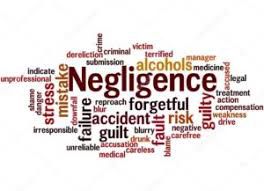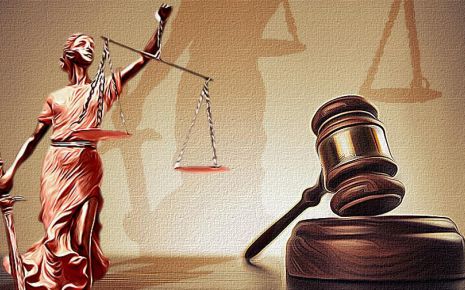Analytical Jurisprudence on Function of law, Sanction and Sovereignty

Analytical school of Jurisprudence is based on the legal maxim, 'Ubi civitas ibi lex' which signifies 'where there is State, there will not be anarchy' and therefore, the underlying principle o...
Death Penalty Valid Or Not?

India is a country which consist of large number of crime and criminals. In India all punishments are based on the motive to give penalty to the wrongdoer. There are two main reasons for imposi...
Legal Aid With Reference To Legal Service Authority Act 1987

Legal Aid implies giving free legal service to the poor and needy who cannot afford the services of a lawyer for the conduct of a case or a legal proceeding in any court, tribunal or before an ...
Death Caused By Rash And Negligent Act

Death as a result of carelessness involuntary manslaughter is a criminal violation that happens when someone causes the death of another person without intending to kill them via ignorance or c...
Transfer of Property to Unborn Children: Legal Insights Under Sections 5 and ...

Section 5 of the Transfer of Property Act, 1882 defines the phrase "transfer of property". The section provides that "transfer of property" means an act by which a living pe...
Right Against Self-Incrimination With Special Reference To Voice Sample

In criminal law, self-incrimination is the act of making a statement that exposes oneself to an accusation of criminal liability or prosecution. Self-incrimination can occur either directly or ...
Punishment under IPC with Special reference to Bhartiya Nayay Sanhita

In India, the concept of punishments has been prescribed and enshrined in ancient mythological texts and artefacts like the Mahabharat, Vishnu Puran, Ramayana, and Durga Saptshti, as well as in...
Maintenance To Wife Under Muslim Law

Verse 34 of the fourth chapter of the Quran, Surah An-Nisa, discusses a husband's role as the protector and maintainer of his wife. It also addresses how he should deal with disloyalty on her p...
Popular Articles by Safa hussain
Transfer of Property to Unborn Children:...

Section 5 of the Transfer of Property Act, 1882 defines the phrase "transfer of property&q...
Punishment under IPC with Special refere...

In India, the concept of punishments has been prescribed and enshrined in ancient mythological ...
Maintenance To Wife Under Muslim Law

Verse 34 of the fourth chapter of the Quran, Surah An-Nisa, discusses a husband's role as the p...
Analytical Jurisprudence on Function of ...

Analytical school of Jurisprudence is based on the legal maxim, 'Ubi civitas ibi lex' which sig...

